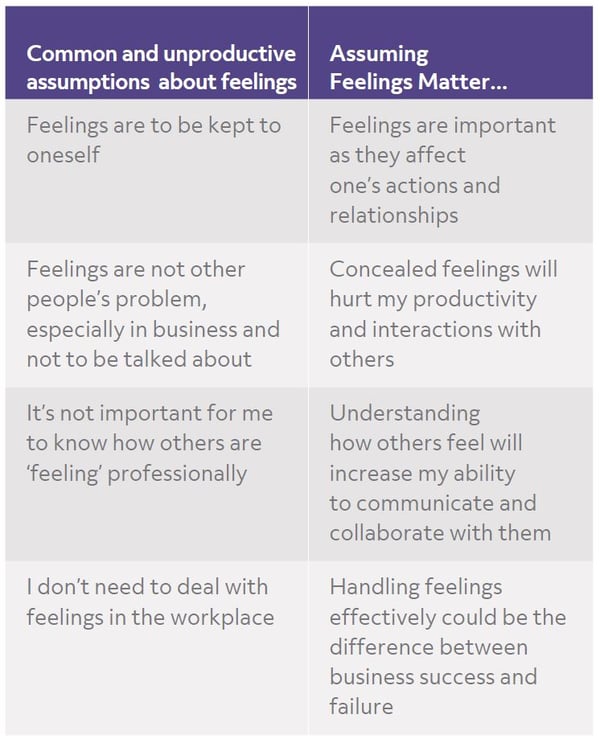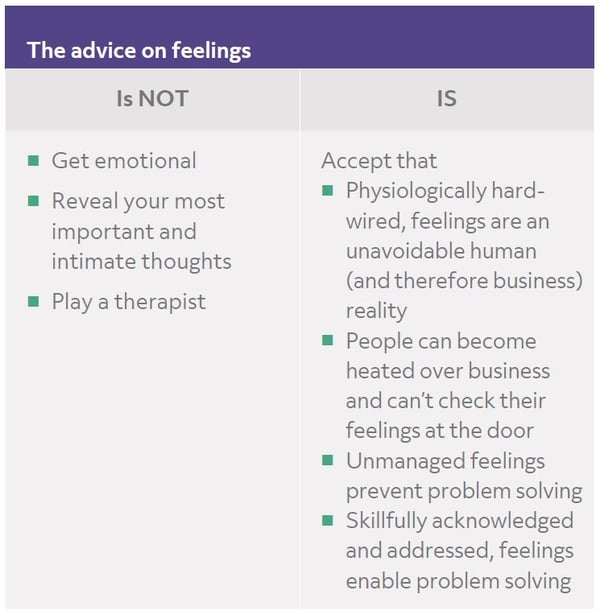
The Scenario
It’s Friday at 4 p.m.. You’ve been working hard all week, put ting in late nights in order to hit a critical weekend deadline. And you just made it. Document sent. Unfortunately your sense of accomplishment is fleeting: you pushed everything else aside in order to focus on this project, and already the weight of that backlog is making you dread Monday. “I’ll deal with it next week,” you tell yourself, just before an email appears in your inbox. It’s your boss, and she’s responding to the document you just sent. “Thanks for this,” it reads. She continues, “I hate to do this to you, but we just got a last minute request for changes to the last half of this report. I’ll need them from you by Monday, so it looks like I’ll have to ask you to put in a few hours this weekend. Let me know if you have questions.”
You couldn’t be more furious. (Not to mention frustrated, let down, and exhausted.) This means canceling your weekend plans and disappointing your family, as well as depriving yourself of needed rest. Plus, you’ve been working like crazy, and your boss doesn’t even seem to have noticed. She apparently has no appreciation for all the work already on your plate, and she’s taken away your weekend with hardly a flinch. In the end though, it feels like you have no choice. The work needs to be done, and you’re not one to let others down. You grit your teeth and re-open the document…
Scenarios such as this one are not uncommon. In the work place, situations often arise that create strong feelings. Some of these feelings — such as excitement, engagement, pride, and enthusiasm — we welcome, but others — anger, disappointment, and sadness, for example — we often treat as something that should be checked at the door. In reality, no one can simply set their feelings aside, and when not dealt with effectively, those feelings stand to significantly impact the bottom line.
What's Really the Matter
Faced with the above scenario, many of us might put our head down, get to work, and try to focus on the task at hand, never actually voicing our feelings. (To our boss, at least. Spouses and family members may be another story.) We convince ourselves that our feelings are not what’s important, that it would be inappropriate to discuss them, and that what really matters is getting things done.

The problem is, not addressing those feelings fundamentally interferes with our ability to get results. We are far less likely to get things done (let alone done well) when we are hijacked by strong feelings. In fact, neurological research shows that individuals experiencing negative emotions experience a decrease in certain cognitive functions. Their thinking becomes less flexible, original, and discerning, and thus effective problem solving becomes almost physically impossible.1 Furthermore, this decline in mental capacity comes on top of all those consequences likely to follow whenever individuals feel demotivated, disengaged, or discouraged, namely: decreased productivity and innovation, a lack of creativity, and minimal engagement.

Handling Feelings Skillfully Leads to Results
Feelings are unavoidable in the workplace. Their impact, whether positive or negative, is undeniable. They are not just superficial static, but the fundamental drivers of how we approach each and every task. Furthermore, they are important pieces of data. Strong feelings tell us that some-thing important is going on. The project is either going very well, or there are problems to be solved, improvements to be made, relationships to be repaired. Feelings help tell us where things stand and where we need to look in order to get things back on track.
Such efforts lead to bottom line results. For example, Sheraton Hotels increased market share by 24 percent as a result of short trainings sessions focused on enhancing EQ skills. The initiative also resulted in a significant increase in guest satisfaction and reduction in staff turnover.2 L’Oreal began selecting sales agents based on their emotional competence. These agents outsold traditionally hired agents by over $91,000 a year, for a net revenue increase of $2,558,360.3 The United States Air Force achieved similar results. After beginning to select recruiters that scored high in terms of emotional intelligence, the organization saw immediate annual savings of $3 million.4
Dealing with Feelings Does Not Mean Getting Emotional
A feelings conversation does not have to be an emotional conversation. The purpose of any conversation about feelings should in part be to learn. To learn about how our own behavior may have impacted another. To learn about the intentions behind actions that led to our own strong feelings. To learn what about the situation is exacerbating bad feelings or getting in the way of good ones. Not learning for learning’s sake, but learning in service of enhanced processes, better products, and more effective relationships.
In order to facilitate these sorts of learning conversations we need to develop (and enable others to develop) the ability both to share our own feelings effectively and to listen to and empathize with the feelings of others. Whether it is our own or another’s feelings that are the subject of focus, addressing those feelings via skillful listening and empathy is the key to unlocking our otherwise feelings-engrossed cognitive capacity. Awareness and skillful handling of emotions is the only way to rob those emotions of their sometimes paralyzing grip. At that point, with our minds back in a place of flexibility, creativity, innovation, and engagement, and with critical data about the situation surfaced, we can work together to arrive at optimal solutions.
By recognizing that feelings are inevitable and critical to success, we can then take the steps to equip ourselves and others with the skills required to handle them. Instead of being hijacked by feelings left to run amok, we can learn to leverage important emotional data en route to enhanced problem solving, improved relationships, and superior bottom line results.
| 1 Lee, David. “How Employee Emotions Affect Your Organization’s Ability to Compete”, HR Today. 2 Joshua Freedman, Case Study: Emotional Intelligence at the Sheraton Studio City Hotel, Six Seconds Institute for Organizational Performance 3 Spencer, L. M. J., McClelland, D. C., & Kelner, S. Competency assessment methods: History and state of the art. 4 Government Accountability Office report: Military Recruiting: The Department of Defense Could Improve Its Recruiter Selection and Incentive Systems. |
.png?width=512&height=130&name=vantage-logo(2).png)


